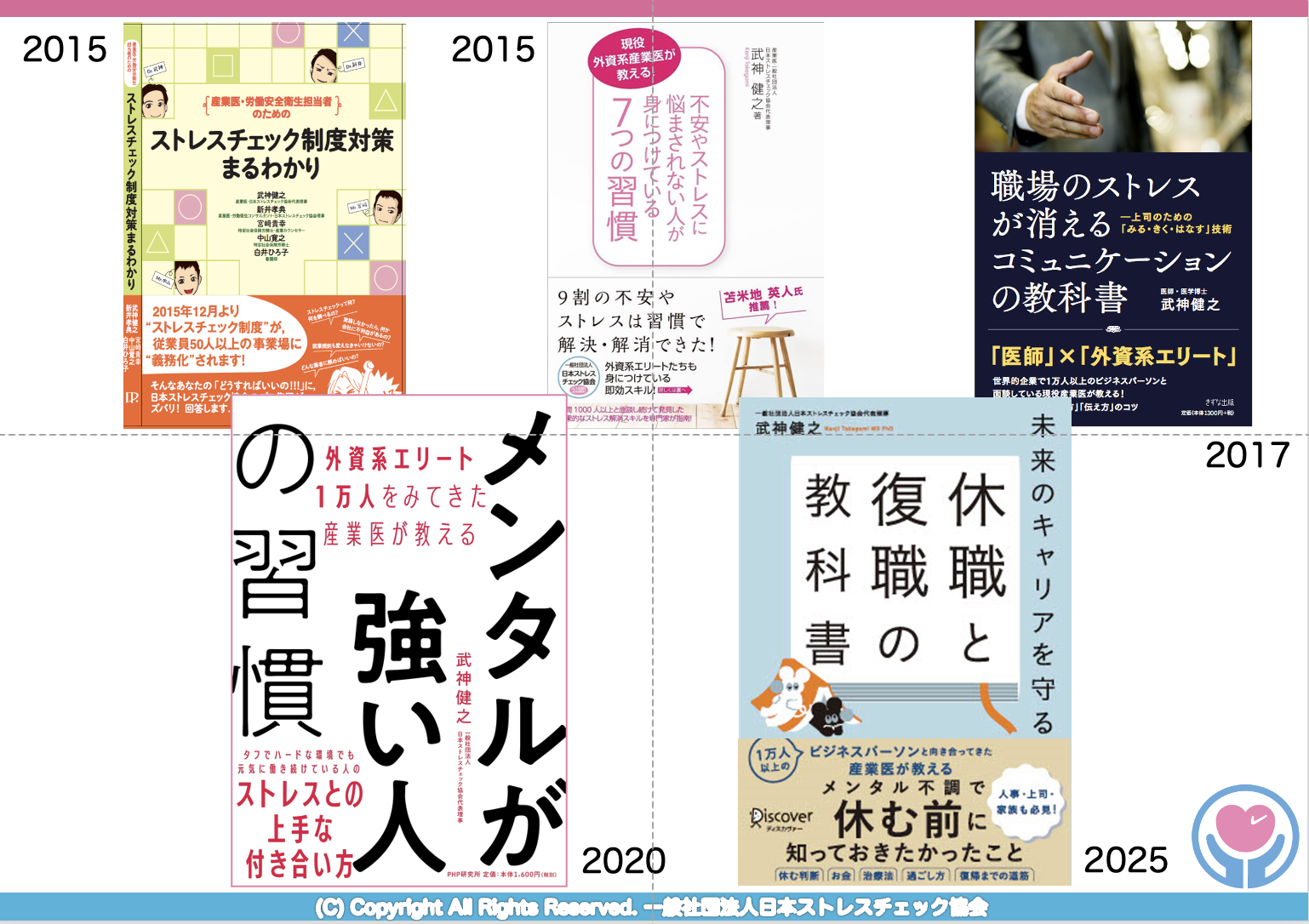いつもありがとうございます。
産業医の武神です。
今回は、
【安易なPTSD対策にだまされないために】
という内容のお話しをさせて頂きます。
無料資料の提供もあります!
あなたの会社の労働安全衛生管理・産業医活動のヒントになれば幸いです。
地震に津波
原子力発電所
放射線被ばく
食べ物や水の安全性
この数週間で、いろいろなことが起りました。
従業員のメンタルケアもかなりクローズアップされているようです。
しかし、その半面、安易な
”PTSD”商法 (PTSD関連商売)
も目立つようになってきたと感じます。
今日は、本当のストレスマネジメントをしっている企業(人)の見分け方のポイントについてお話しさせて頂きます。
PTSDは多くの人の知る言葉となっています。
本当のPTSDは、
【惨事の1カ月あとにも続いているもの】で、
3カ月で50%の人が治る
(50%しか治らない)
と言われています。
現時点(2011.3.30.)では、
【PTSDに移行させないようにすることが最も大切】
です。
いわば、今はPTSD予防対策の一番大切な時期なのです。
この時期のストレスを、
【惨事ストレス Critical Incident Stress CIS】
といいます。
惨事ストレスCISは、
1.誰にでも起こる可能性があります。
あなたが弱いわけではありません。これは、
2.(惨事という)異常な状況への正常な反応です。
そして、
3.多くの惨事ストレスは適切に対処すれば回復 します。
適切な対処で心的外傷後ストレス障害(PTSD)を防止することが大切です。
きちんと惨事ストレス対策をとっている企業もあります。
惨事ストレスのコツを書いた紙を
トイレの個室の内側にはったりするのも一つです。
(やっている企業もあり、結構評判よかったと聞いています。)
利用した感想をアンケートでお答え頂ける企業様には無料で提供させて頂ききますので、このメールに
【会社名、担当者名、企業規模(人数)など書いて】
ご連絡ください。よろしくお願いします。
追記:
放射線に関して、
現時点では、東京は安心安全ですが、
過度な不安が人々の生活の質を下げていると感じます。
正しい知識をもって、正しく対処することが大切です。
弊社では現在、
【放射線被ばくの基礎と惨事ストレス対策】
という依頼講演をうけたまわっております。
(英語、日本語、両方可能)
従業員の心と身体の健康のためにも、ご活用ください。
講演の話をもう少し詳しく聞きたい方も、同様にメールでご連絡下さい。
以上、
あなたの会社の労働安全衛生管理・産業医活動のヒントになれば幸いです。
なお、PTSDはしっかりとした疾患であり、これは専門家の治療をお勧めします。安易なその場限りの講演で対処できるものではありません。

